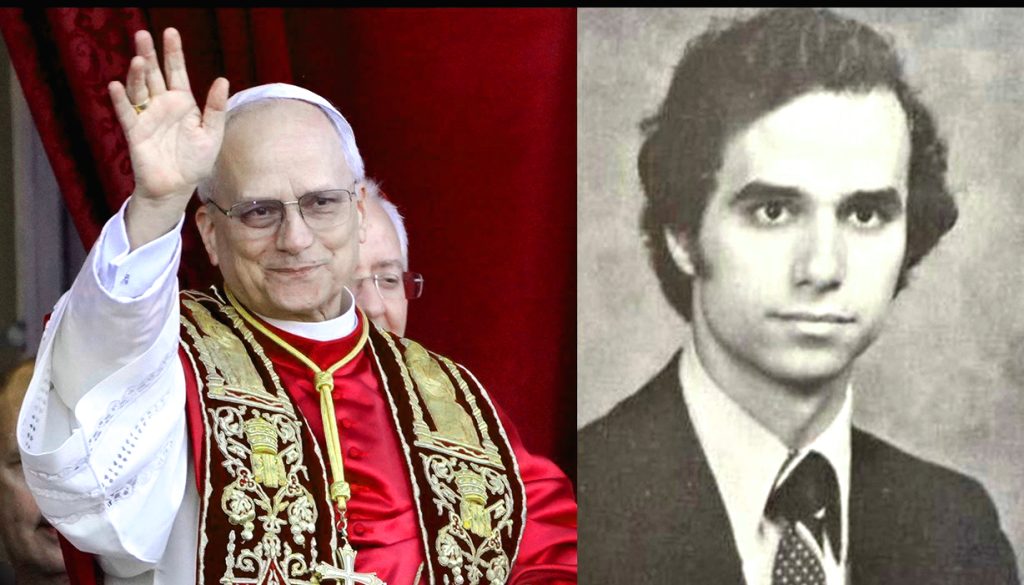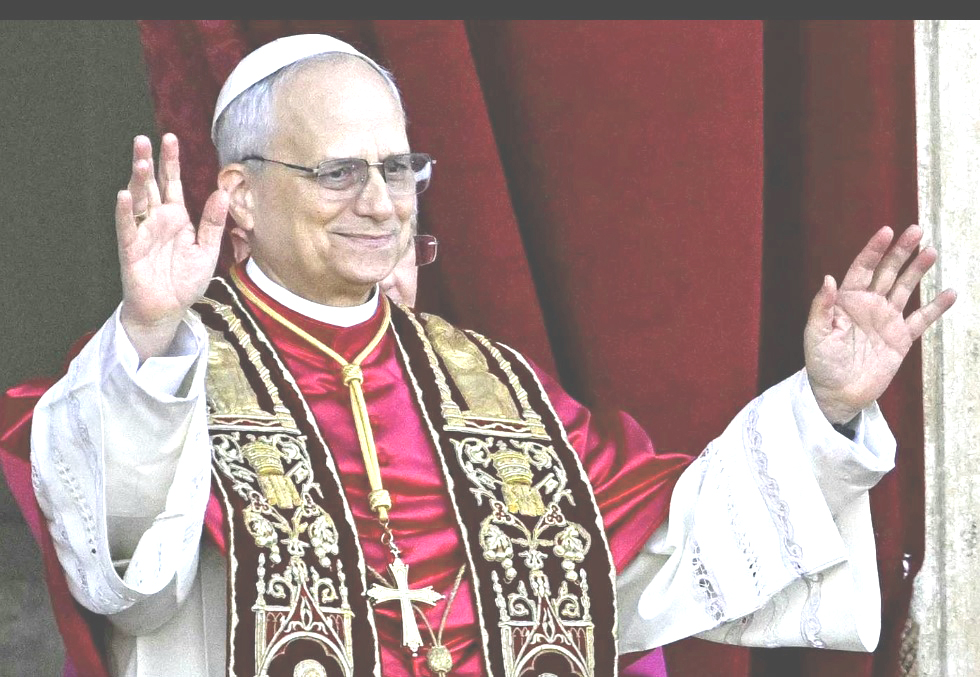Pope Leo XIV has, since the time he was elected, a future-oriented and pastoral vision for the Church. He has a desire to invigorate local parishes, tackle global disparities, and deepen the engagement of young Catholics in the life and mission of the Church. Pope Leo XIV is accentuating a further synodal Church where consultation, collaboration and discernment inform decision making at all levels of the Church.
Synodality and Church Reform
One of the early themes to be used publicly by Pope Leo XIV has been synodality. Synodality is rooted in the Second Vatican Council and placed in the foreground by Pope Francis, and Pope Leo XIV intends to build upon that reputation. He wants to stimulate local bishops and lay leaders to engage in dialogue in individual dioceses.
“The Church must journey together: bishops, priests, consecrated people, and lay people so that it can be missionary” was the observation by Pope Leo XIV, when he addressed the faithful in his first Urbi et Orbi message. And he has also begun initiatives to simplify canonical procedures to make the Church more responsive to pastoral needs, especially in the midst of process applicants for marriage annulments, clergy discipline, and generous financial disclosure.
Digital Evangelization
Acknowledging the digital age, Pope Leo XIV has created a new Papal Commission on Digital Evangelization. This Commission is responsible for establishing standards for online catechesis, implementing ethical AI practices, and protecting the youth from exploitation in the digital realm.
This has all been a part of his greater good – “meeting people where they are,” especially younger generations who spend so much of their life online. His team has already increased the Vatican’s digital footprint and developed a mobile app that features daily scripture, prayers, and straight-from-the-pontiff messages.
Environmental Stewardship and Climate Justice
Climate action and care for creation is another important emblem of Pope Leo XIV’s papacy. Building upon Pope Francis’s Laudato Si’, Leo XIV has put ecological conversion at the forefront as a moral obligation for Catholics around the world.
In his encyclical-to-be untitled Terra Spei (“Earth of Hope”) he states:
“Creation is not a resource to be mined indefinitely, it is a sacred gift entrusted to us. Indifference is no longer an option.“
He has gathered interfaith leaders for a Vatican Climate Summit and has engaged wealthier nations to assist developing countries most impacted by environmental destruction.
Propagating Peace and Diplomacy
Pope Leo XIV has made strides in Vatican diplomacy with countries in conflict, especially in regions affected by war such as Ukraine, Gaza, and parts of Africa. During these efforts he has sent “special envoys” to take on mediation roles and further humanitarian relief, while reminding policy-makers of the nonviolent mission of the Church.
His years work for the Church in Latin America have given him a wealth of experience witnessed through the lens of Global South inequities. He has shown an interest in economic colonialism, urging international financial institutions to cancel unjust debt obligations and support sustainable trade policies.
Outreach to the Marginalized
Staying true to his pastoral roots and his experience in Peru, Pope Leo XIV has identified the inclusion of marginalized groups as a priority.
• Indigenous peoples: He championed the translation of the Mass into Indigenous languages and recognized their cultural rights.
• Church-oriented women: Without modifying the traditional teaching on the ordination of women, he elevated the role of women in Church governance in Vatican positions, creating high-level status in ways that include women on theological commissions and appointing females to a Vatican diplomatic position.
• LGBTQ+ Catholic feedback: He encourages a tone of listening and accompaniment for LGBTQ+, without judgment but keeping the overall Church teaching in mind, claiming that it is pastoral but not doctrinal.
Relations with other Faiths
Pope Leo XIV has ramped up interreligious outreach, focusing on Islam, Judaism, and Eastern Orthodoxy in particular. He has suggested a “Common Creed of Peace” that would be signed by leaders from prominent religious traditions and includes commitments to mutual respect and violence rejection, and common ethical principles.

Some significant milestones have included:
- A joint declaration with the Grand Imam of Al-Azhar in which they denounce religious extremists.
- A pilgrimage to Jerusalem in order to promote Catholic-Jewish understanding and mutual goodwill.
- An earnest commitment to dialogue with the Orthodox Church regarding Eucharistic unity.
The Media and Public Response
Globally, Pope Leo XIV has been received positively. The U.S. Catholic community sees his election as a sign of their increasingly global recognition in the Catholic Church. The media has received the story of Pope Leo XIV’s consecration as a human story of humility, intellectual rigor, and a practical operational plan.
The fact that he describes himself as a “missionary pope” with a mathematician’s head and the heart of a pastor is very appealing across a broad spectrum of believers. Also, he has made it clear that he intends to speak plainly. In an interview, he declared:
“The pope does not get paid for being a celebrity, but is a servant. We have to restore credibility, and do so, not by words, but rather deeds.”
Personal Style and Symbolism
Pope Leo XIV is noted for small gestures that speak volumes:
• For example: wearing a plain silver pectoral cross instead of gold.
• Living in the Domus Sanctae Marthae guesthouse instead of the Apostolic Palace.
• Driving a fuel efficient Popemobile, which indicates sustainability, for more awareness.
His papal motto, “Veritas et Misericordia” (Truth and Mercy) encapsulates how his leadership style describes, does not bend on doctrine but will be overflowing with compassion.
Legacy Potential
Although Pope Leo XIV’s papacy is still in its infancy, analysts and theologians are already hypothesizing about the long-term impact Pope Leo XIV truly has. Some think he can:
• Lead the Church into a new age of global engagement.
• Innovate the historic divisions between traditionalists and progressives.
• Provide authenticity and pastoral presence that inspire a new generation of vocations.
In an ideal future, Pope Leo XIV will be recognized as a game changer for the Third Millennium of Christianity, in ways similar to St. John Paul II who was a global visionary or Pope Francis, who model human growing pains of compassionate reform.
The White Sox and the 2005 World Series
One delightful fact about Leo XIV’s history continues to enchant fans and reporters alike—his loyalty to the Chicago White Sox, who managed to win the World Series in 2005 after an 88-year drought. Back then, just “Bob Prevost,” he tuned into the games with other priests and seminarians, recalling it as one of his “most joy-filled community experiences.”
That win became a representation of persistence—an attribute that now may be connected to his own perseverance to the papacy. In a joking comment with a group of Cardinals, he remarked:
“If the Sox had a championship, anything is possible—even a kid from Chicago can become pope!”
Final Thoughts
The selection of Pope Leo XIV, born Robert Francis Prevost, will be a pivotal milestone for American Catholics, but the whole Church is also impacted. His combination of humility, intellect, and missionary heart is already making a significant difference in how the Vatican responds to the quickly morphing world. In an age of skepticism and division, he is offering a compelling regard for faith, grounded in frameworks for mercy, justice, and community.
- Meta Description: Explore the life, mission, and global impact of Robert Francis Prevost—Pope Leo XIV—the first American-born pontiff leading the Catholic Church into a new era.
Keywords: Pope Leo XIV, Robert Francis Prevost, first American pope, Catholic Church 2025, papal election, missionary work, Chicago White Sox, Augustinian Order, papal biography, 2005 World Series pope fan, synodality, Laudato Si, Vatican reform, digital evangelization, papal leadership 2025, Leo XIV reforms.
![]()

